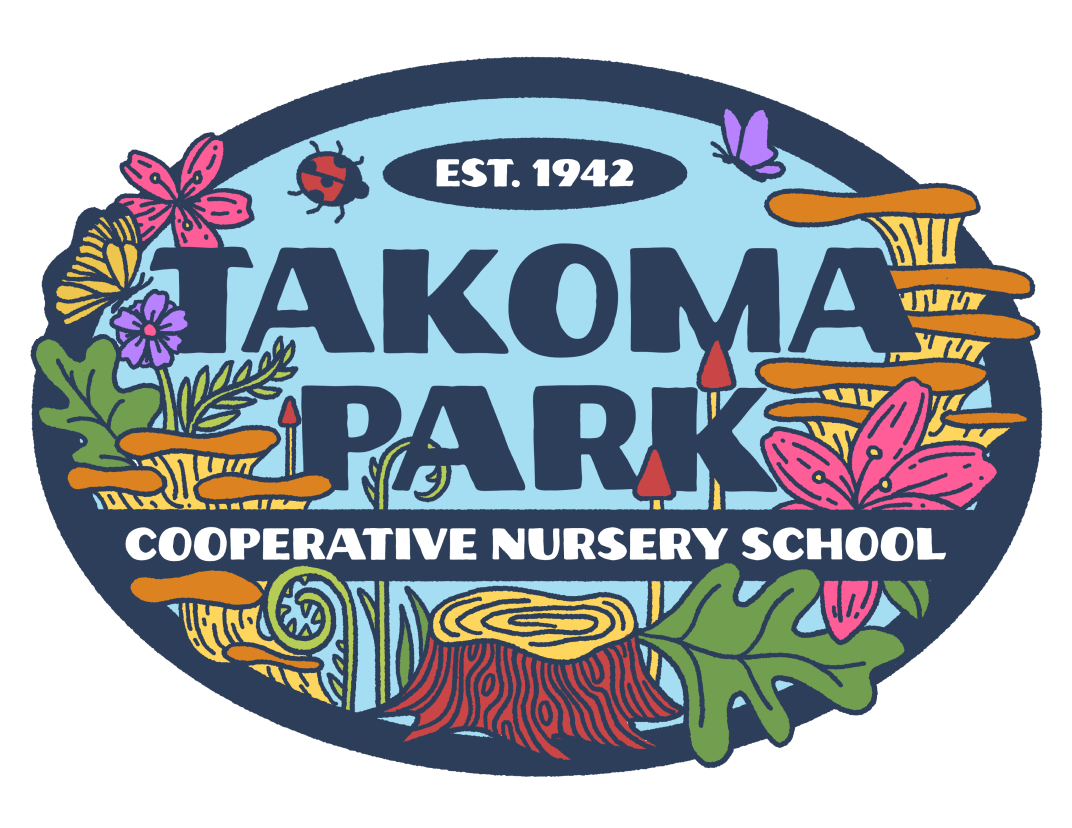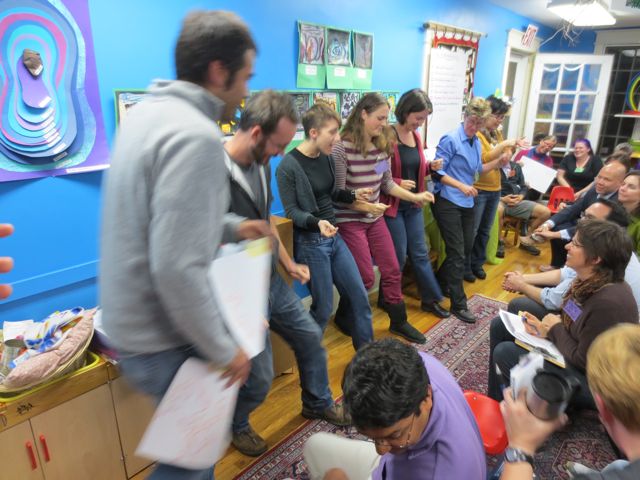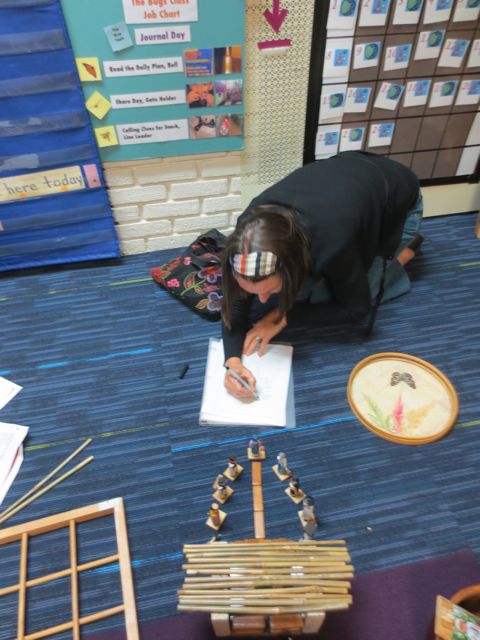Co-oping is not the same as volunteering
We spend a lot of time searching for words and descriptions to help the children find just the right way to express what they are thinking or feeling. We do the same thing in trying to message what the parent cooperative model is about and what it means at our school. The cooperative or participatory model has been around, in a formal way, for decades, but really when have parents not gotten together and shaped some kind of communal and parent-guided education for young children? The cooperative model simply added bylaws and methodology to guide these efforts.
Now that structured early childhood education is available and even expected, other models have shaped the conversation about what roles parents will play in their children's early education experiences. It might seem that the best way to describe the interactions and contributions of parents is better understood through the lens of those programs that dominate the conversation. Sometimes people will describe co-oping as volunteering. It is close, but it does not fully embrace what it means to be a co-oper.
In other programs, parents might volunteer or help in the classroom, on the playground, or the office. In a cooperative, that kind of assistance only scratches the surface of what parents do in the classroom and as administrators of the schools they own and operate. Volunteering implies that you could also not volunteer.
In a cooperative, working in the classroom and in an administrative position is a requirement for membership in the school. In order to co-op in the classroom at our school, every parent must attend an orientation and classroom training (4-6 hours). They are also required to attend monthly membership meetings which are part business meeting and continuing parent education. There are also committee meetings and events to attend. Rest assured that the children who attend our schools know exactly what a meeting is and many know what committees their parents have served on!
Further, parents own and operate their cooperative schools only while their children are enrolled. There is an ever-changing roster of parent co-owners. This means that there must be immediate engagement, bringing these employer-owners up to speed, and then in passing this information on to the next group of parents. It helps that there is low staff turnover at most cooperative schools and staff (usually one or two professional teachers, but sometimes more) serve on the Board of Directors and are also considered members of the cooperative.
This focus on community organizing sustains cooperative schools and creates bonds between the parents, children, and staff that have long-lasting impact on all. Parents have reported that it changes the way they approach their own work, both professionally and in their community. Most often parents report that it changes the way they parent.
From my own perspective, first as a parent who joined the school knowing absolutely nothing about cooperatives or their history and then as a second career teacher teaching at this same school, I have benefited both personally and professionally. By working alongside a diverse group of people towards a shared ideal--education of our children, I have acquired new skills and refined others. As a parent, I gained a cohort of people I could turn to for support, for advice, and I, in turn, could offer the same.
This happens because parent education leads the mission of the cooperative model school. This begins with the engagement required to land on our feet running each year with new parents and extends to training sessions to co-op in the classroom and on administrative committees. It is a "you help us" and "we'll help you" scenario except for the part where the we, you, and us are all the same people and the help is reciprocal!
[gallery columns="2" ids="3254,3255,3256,3251"]
In 1981, Sandi Kemp, a parent involved in an Indiana cooperative, nailed down the long-term benefits of this reciprocal relationship shaped by the cooperative model. This is an excerpt from her article, Professional Parents published in PCPI's publication, Learning Together.
You may think I am writing for “working” parents. I’m not. I am writing to parents who view their important role as a profession. Because it is just that—a profession of rewarding, challenging, and, at times, frustrating experiences.
Because the career of being a parent generally starts with very little experience and spans long periods of time, it is necessary that parenthood be a continually self-educating process. We can never learn enough. And children are the greatest aid to adult education.
Those of us who have had contact with a cooperative preschool are lucky. We have been directed toward professionals in our community to help educate us as parents. This is something we can value and use forever.
Who could be called a “professional parent” without basic knowledge in the first aid, communication skills, spiritual growth, physical development, decision making and time management? Cooperative parent education programs help busy parents to grow in these areas and become more professional.
Children and parents growing together.
Make no mistake, volunteering at your child's school will bring many benefits and joys, everyone should do it -- volunteering models involvement for your child and his or her peers. It brings much needed support. Co-oping brings it to a new level. It provides not just an open door to your child's early experiences, it gives you a guided tour! Except as a co-oper, you are both the guided and the guide. You are both the recipient and the giver.
All for one and one for all. That is the cooperative way.




